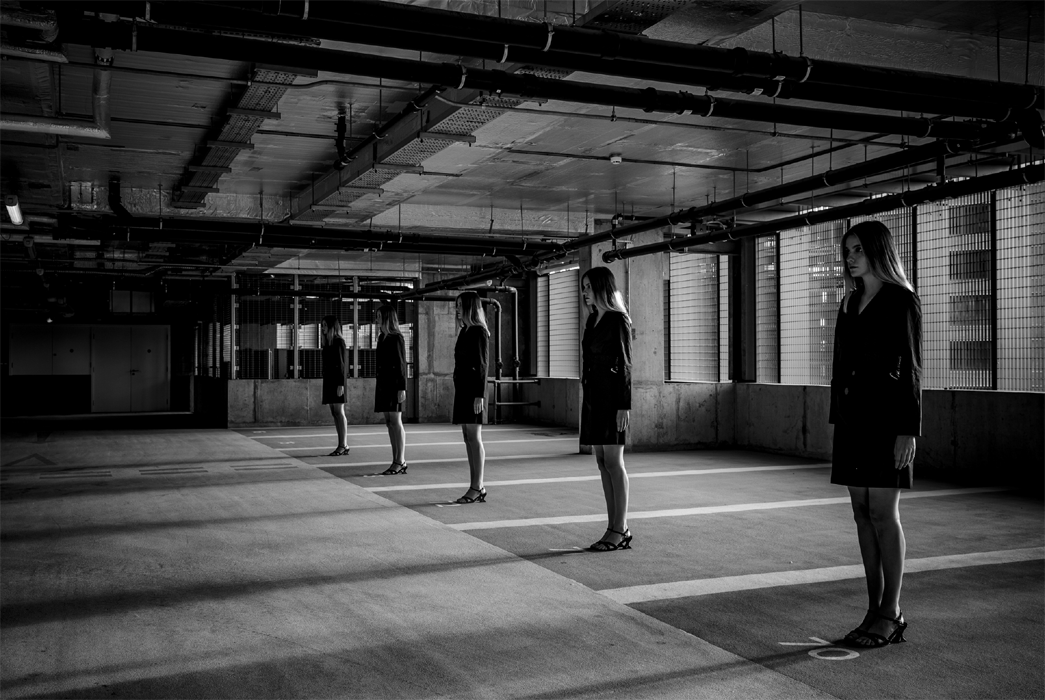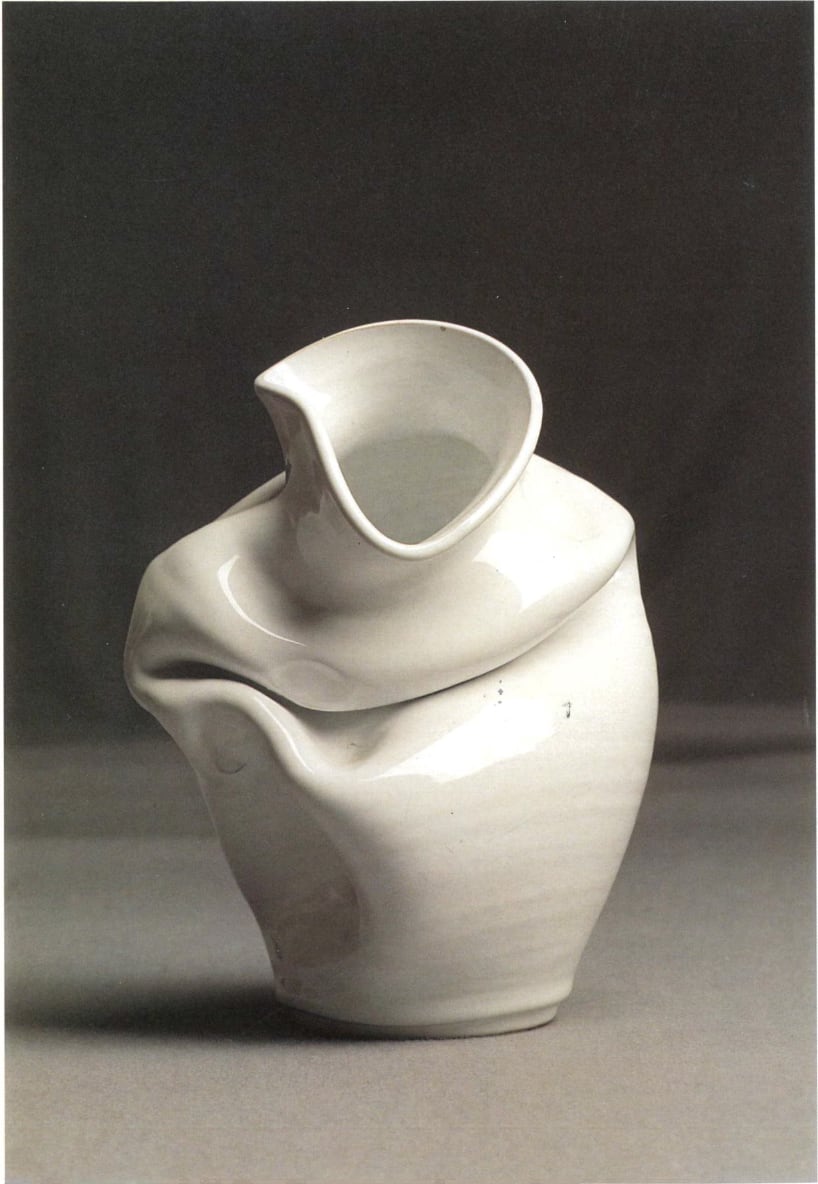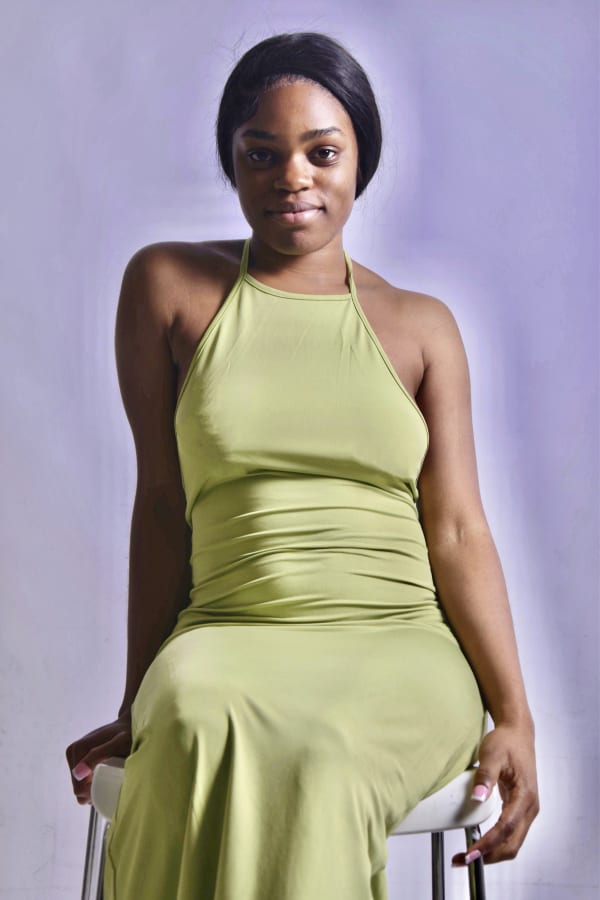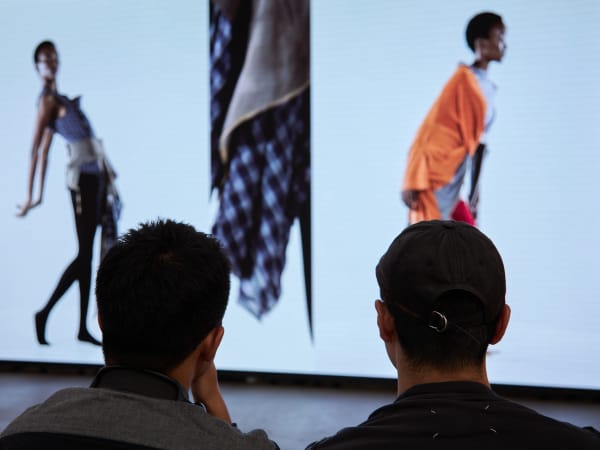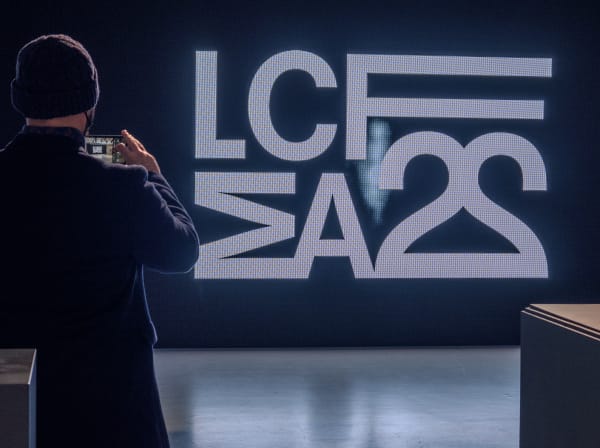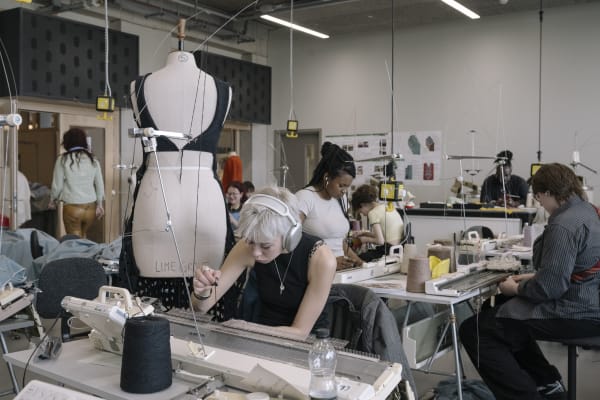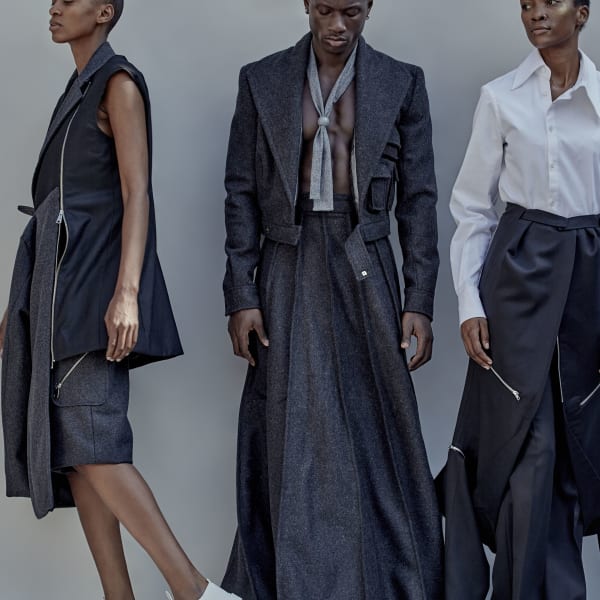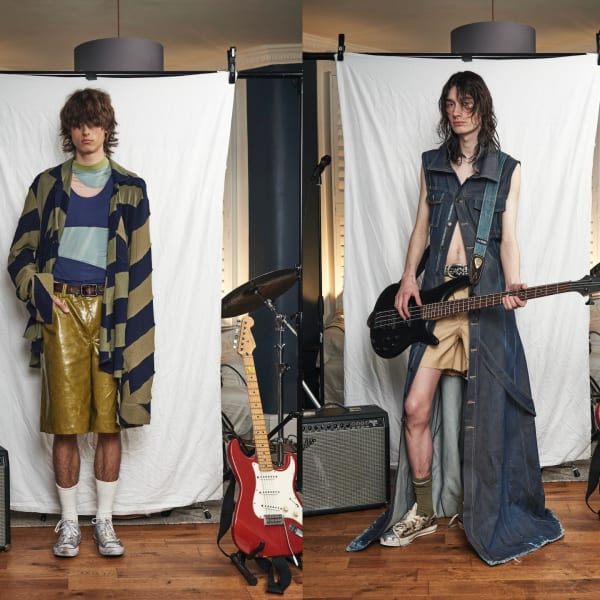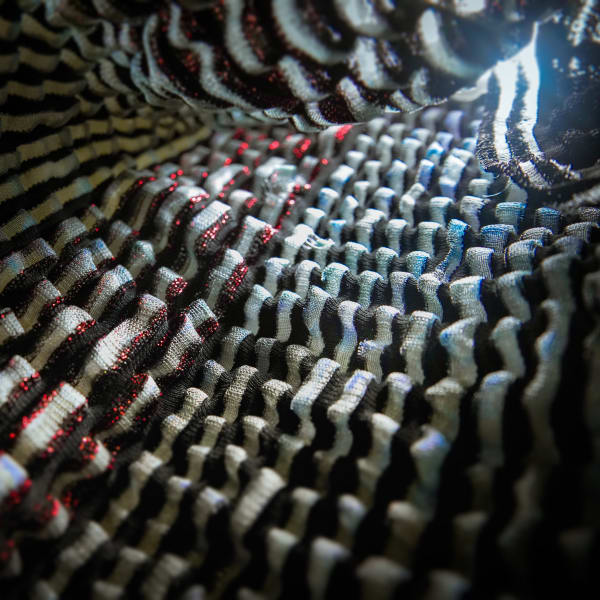Course units
Stage 1
In Stage 1 you are required to complete 120 credits at level 4 in order to progress to Stage 2.
Introduction to Fashion Pattern Cutting (20 credits)
This unit introduces you to your course, its subject area, and how to study effectively at undergraduate level. It will orientate you to the practices and knowledge-base needed to understand your discipline and help you to develop your skills for independent and collaborative learning, reflection and your own self development. Students come from diverse educational backgrounds, and this unit will help you reflect on your own and how it influences your approach to the course.
Form and Silhouette (40 credits)
This unit introduces the basics of fashion pattern cutting, focusing on how to create garment fit using suppression. You’ll learn to develop design ideas into 3D forms through creative problem-solving and various techniques. It covers garment specifications, using both hand drawing and digital tools. You’ll also explore fabrics, practice core skills, and create toiles to link 2D designs with final 3D garments.
Sleeves and Collars (20 credit)
Building on your garment-making skills, during this unit, you’ll focus on designing and constructing sleeves and collars. You’ll explore how design ideas translate into 3D garments and how creative choices shape the production process. Using flat pattern cutting and drafting techniques, you’ll turn 2D designs into 3D pieces. You’ll also experiment with fabrics commonly used for shirts and blouses to support your design development.
Drape and Form (20 credits)
This unit focuses on creative pattern-cutting, especially exploring soft structure and fabric drape through advanced modelling techniques. You’ll experiment with fabric to develop original 3D garment ideas. Researching both historical and modern innovators, you’ll build your own approach, considering fabric qualities, cut, and silhouette. You’ll present your research, ideas, and outcomes through drawings and photos, showing understanding of design, finish, and production for your chosen market.
Fashion Cultures and Histories (20 credits)
You’ll take a philosophical and theoretical approach to the study of fashion and its role in representing and communicating identity. Understand key ways of thinking about fashion across its cultural, historical, social and political contexts. Engage in debate and analysis of fashion as a key marker of social and cultural change and a means of understanding the relationship between individuals and communities.
Stage 2
In Stage 2 you are required to complete 120 credits at level 5 to progress to Stage 3.
Structure and Form (40 credits)
In this unit, you’ll be introduced to the challenges of creating structured garments using both traditional and digital methods. You’ll explore tailored garment techniques and learn industry software for computer-aided pattern cutting. Combining manual skills with digital tools, you’ll develop your 3D thinking. You’ll use CAD for technical drawings, production specs, and portfolio work, aiming for creative and ambitious garment outcomes.
Critical Issues in Fashion Research (20 credits)
Expand your critical understanding of fashion in a global context and examine emerging debates in fashion research. You’ll engage in collaborative research around current and emerging cultural issues and be guided through approaches to researching and writing about fashion across its social, historical, political and cultural contexts, building on the first-year unit Fashion Cultures and Histories. During this unit, you’ll develop your own independent research path and interests.
Visual Research Methods (40 credits)
This unit will help you build strong research skills by exploring how to use and combine primary and secondary sources. You’ll learn research methods suited to your subject and create a formal research proposal and presentation. You’ll be encouraged to think about sustainability in your project.
Professional Engagement (40 credits)
Professional Engagement is an Industry Partnered project. This unit lets you apply your skills to a professional brief, either live or simulated, exploring real industry challenges. Working in a team, you’ll develop creative solutions while learning how professionals tackle such tasks. You’ll produce a well-presented project showing your process and problem-solving. The unit also considers issues like sustainability, climate impact, and social justice within industry practices.
Optional Diploma Year
Industry DIPS
This optional diploma can be taken between years 2 and 3. With support from your tutors, you’ll undertake an industry placement for a minimum of 100 days/20 weeks. As well as developing industry skills, you’ll gain an additional qualification upon successful completion.
Enterprise DIPS
This optional diploma can be taken between years 2 and 3. With support from your tutors, you’ll undertake an enterprise placement year where you will explore a business idea from proposal to minimal viable product (MVP). As well as developing enterprise skills, you’ll gain an additional qualification upon successful completion.
CCI Creative Computing
Between years 2 and 3, you can undertake the year-long Diploma in Creative Computing. This will develop your skills in creative computing alongside your degree. After successfully completing the diploma and your undergraduate degree, you’ll graduate with an enhanced degree: BA (Hons) Fashion Pattern Cutting (with Creative Computing).
CCI Apple Diploma
Between years 2 and 3, you can undertake the year-long Diploma in Apple Development. This will give you an opportunity to become an accredited apple developer alongside your degree. After successfully completing the diploma and your undergraduate degree, you’ll graduate with an enhanced degree: BA (Hons) Fashion Pattern Cutting (with Apple Development).
Stage 3
In Stage 3 you are required to complete 120 credits at level 6.
Construction and Transformation (40 credits)
During this unit, you’ll plan and negotiate a personal brief in preparation for your Final Major Project. You’ll explore innovative pattern cutting, stand-work, draping, and fabric experimentation. Through 2D and 3D sampling, you’ll test ideas and refine techniques. You may collaborate with a textile student, and your final work will begin and inspire your collection for the Final Major Project.
Contextualising Practice (20 credits)
Through a research-led, extended essay, you’ll build on your historical and theoretical understanding of fashion, addressing critical debates and concerns raised through your course. After identifying a topic relating to your field of practice, you’ll complete an independent research project, underpinned with cultural and critical theory.
Final Major Project (60 credits)
This final unit marks the completion of your degree and focuses on your personal project. You will complete a six-outfit collection, building on previous work to show advanced technical skills, creativity, and problem-solving. You’ll explore both digital and traditional techniques, respond to your chosen brief, and consider social and environmental issues. The project helps you reflect on your learning and prepare for your future career path.
A 20-credit unit is approximately equivalent to 200 hours of learning time, which includes a mixture of taught time, independent study and assessment.
All students are entitled to a tutorial package that consists of:
- one induction tutorial (group or one to one);
- one tutorial per term for the duration for their course of study at LCF;
- group tutorials as required;
- an appropriate level of confidentiality.
